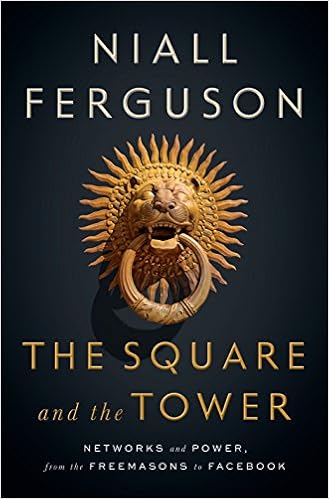
The Square and the Tower is the rare book that is a must read, not only for armchair intellectuals like myself, but also for academics, politicians, CEOs and those in any kind of position of responsibility. I say this not because the book is always correct, or even on point, but because several of the ideas emphasized in this book are important enough that they should be considered, debated upon and ultimately deemed useful or falsified by the intelligentsia.
Essentially, the core idea in this book is that the role and influence of social networks throughout history has been downplayed by historians because of their reliance on state archives which tend to stress the role of hierarchies. Because of this, the rise in the power of social networks spawned by the computer age is mistakenly thought to be an entirely new phenomenon. In fact, argues Ferguson, the struggle between networks and hierarchies is at least as old as human history.
To marshal support for this argument Ferguson begins the book with a summary of network theory. He then retells the story of modernity from this perspective leading up to an ultimate chapter considering the future of human civilization. You certainly cannot say that Ferguson aims too small.
There are some unresolved tensions in this narrative. Some of the chapters rely on real applications of network theory while some are more anecdotal. This is because the idea of what is a social network seems to grow more and more
expansive. Eventually, Ferguson writes that hierarchies themselves are a type of social network. Of course, he is right in a sense, but this tends to blunt the paradigm of a dichotomy between networks and hierarchies. In addition, if every relationship between human beings is a social network then network theory does explain all of human history. But isn’t this basically then a tautology?
Ferguson also goes on many tangents. For example, his vociferous arguments that the culture of Islam is a key element of Arab terrorism versus seeing terrorists as fanatics from any religion does not seem to really be central to the book’s themes.
Nevertheless, Ferguson has either achieved a landmark accomplishment in the telling of history, with important consequences for our current societies, or he has overstressed the importance of networks in modern history. That is a question for professional historians to decide. To become acquainted with this perspective, to see new technologies and new forms of communication through this lens, is something all persons with some share of responsibility for society should at least consider. And, I might add, the book is fun and insightful reading for armchair intellectuals as well.
No comments:
Post a Comment